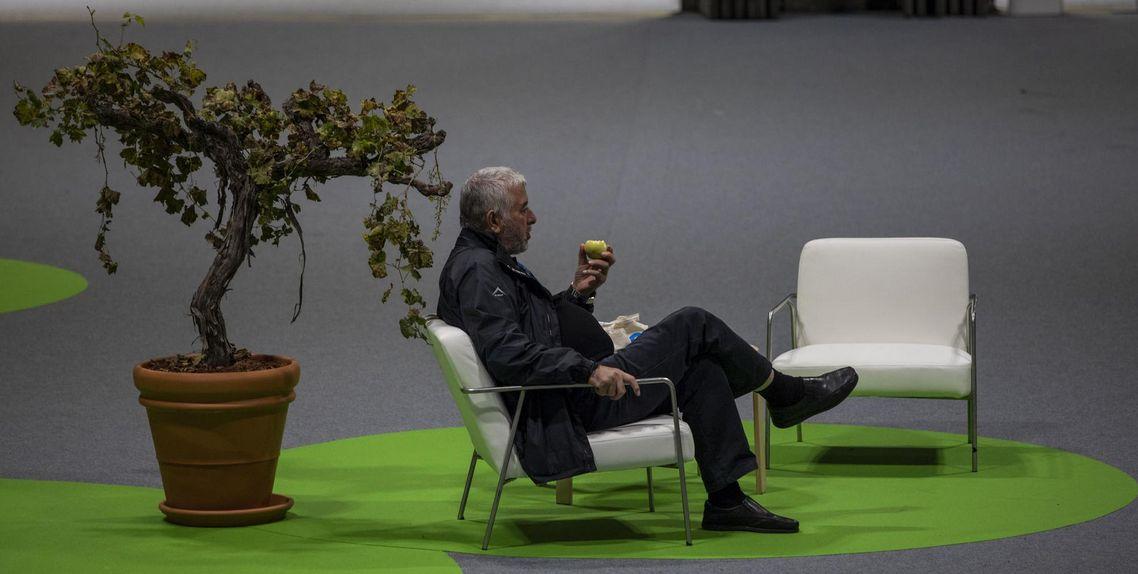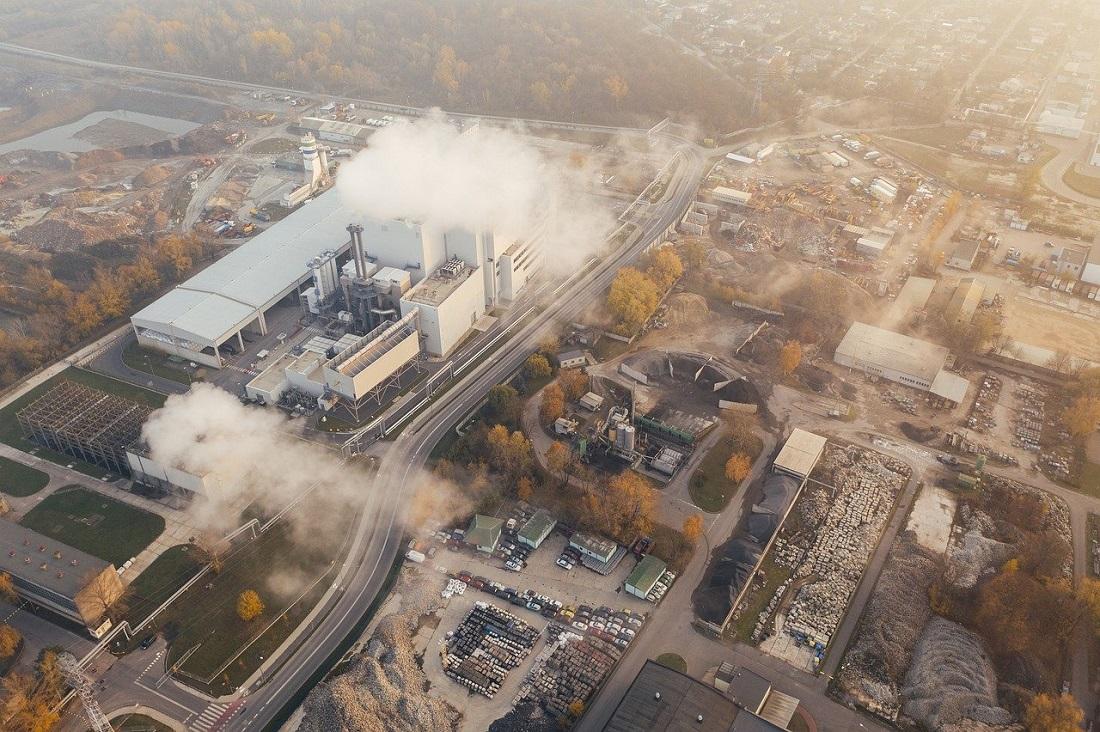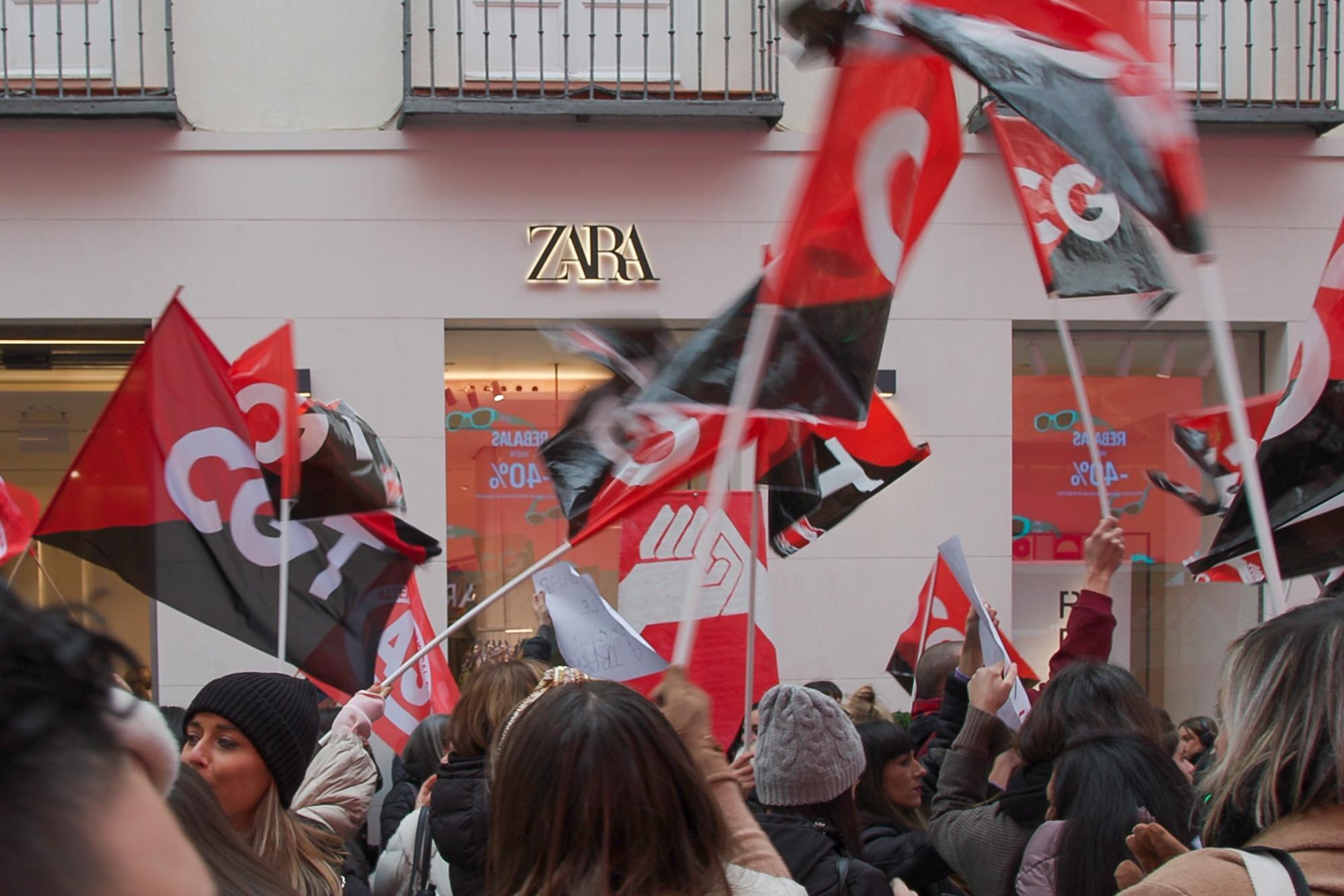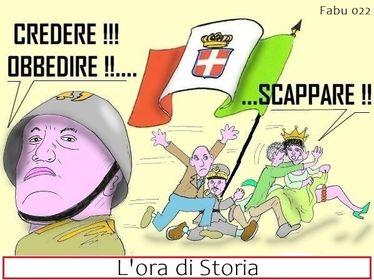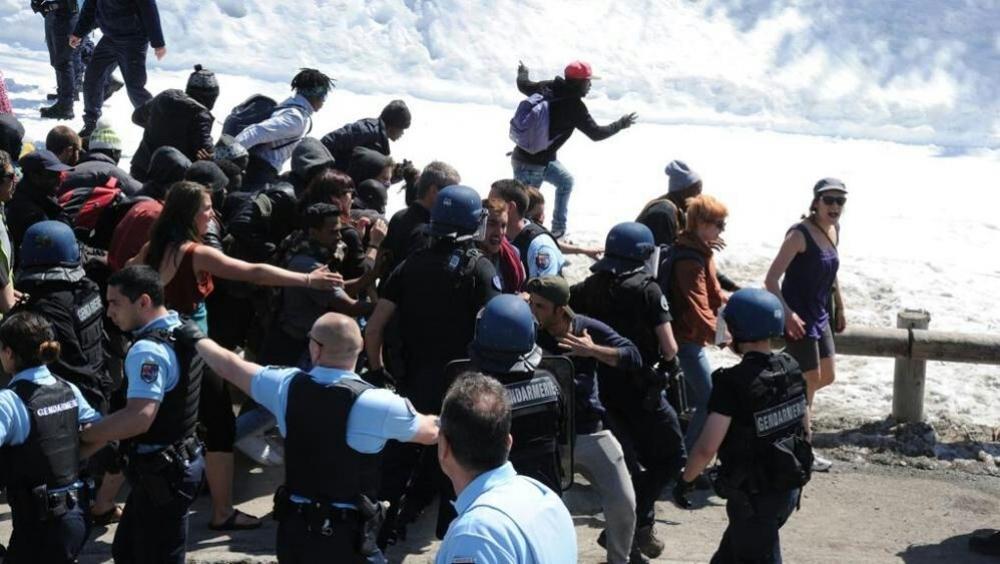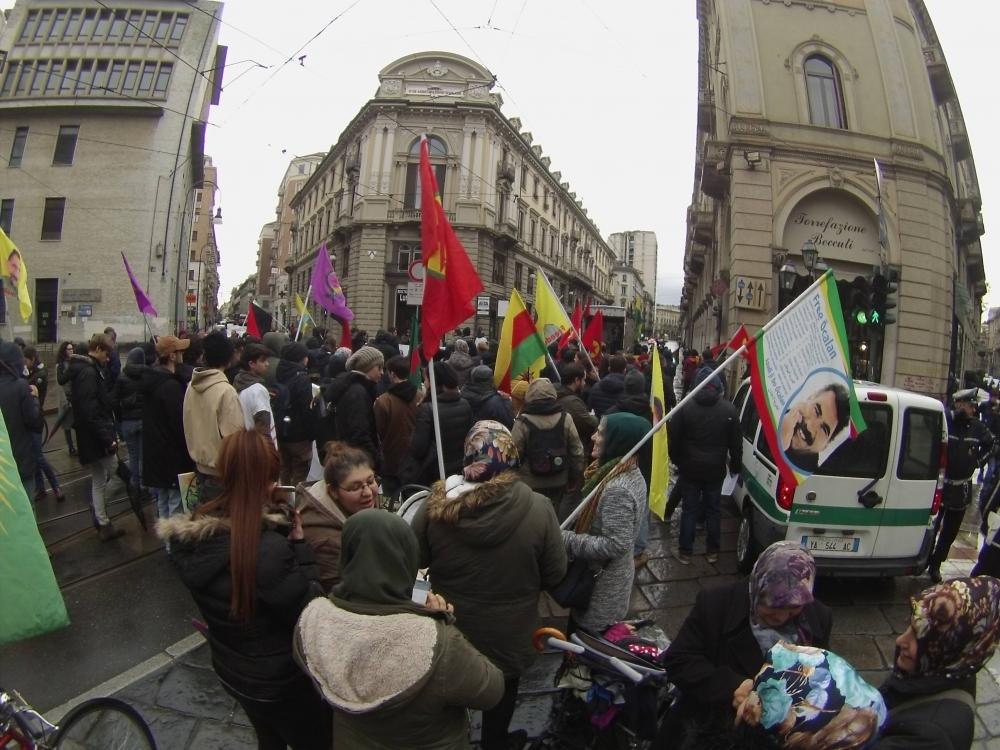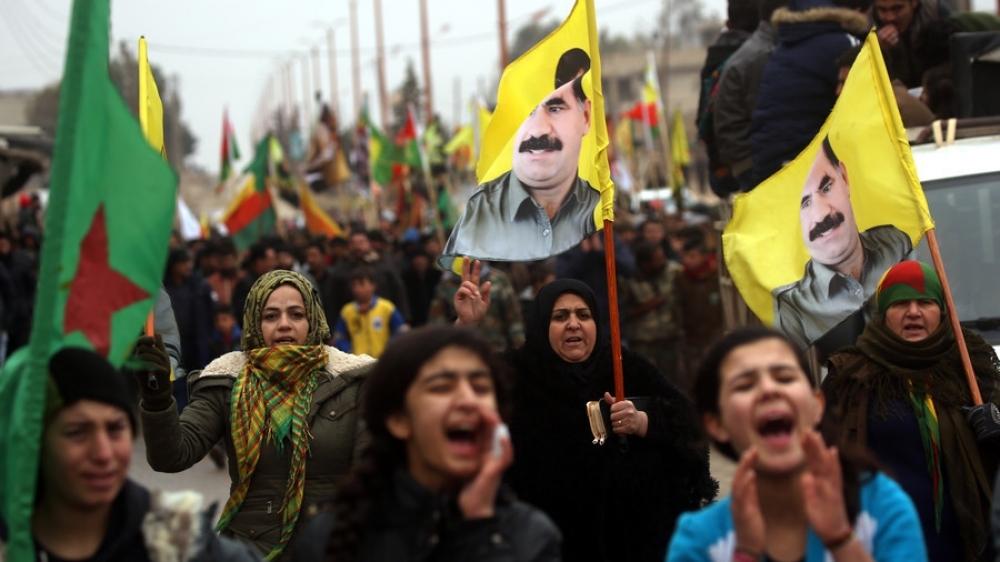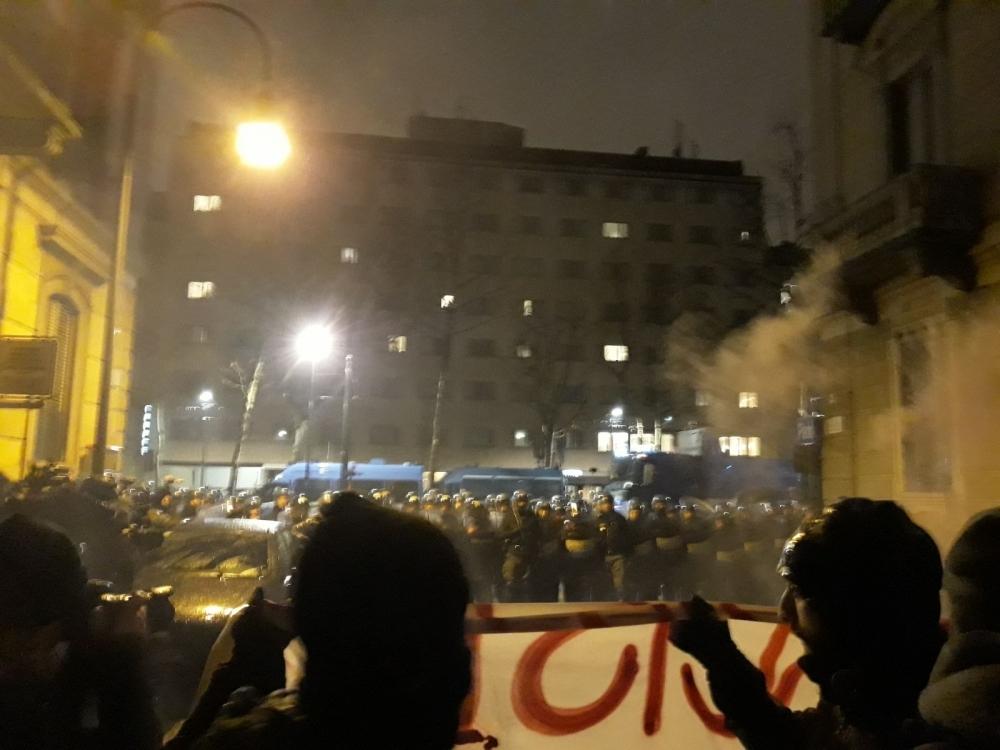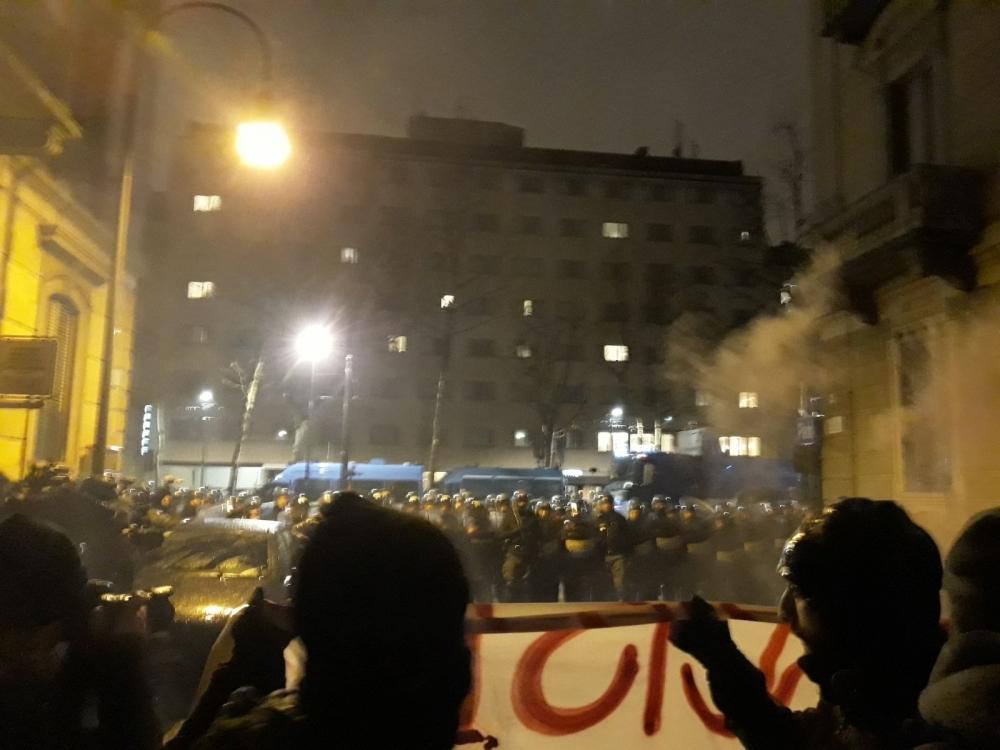
The resistible rise of neofascism in Italy and its opponents
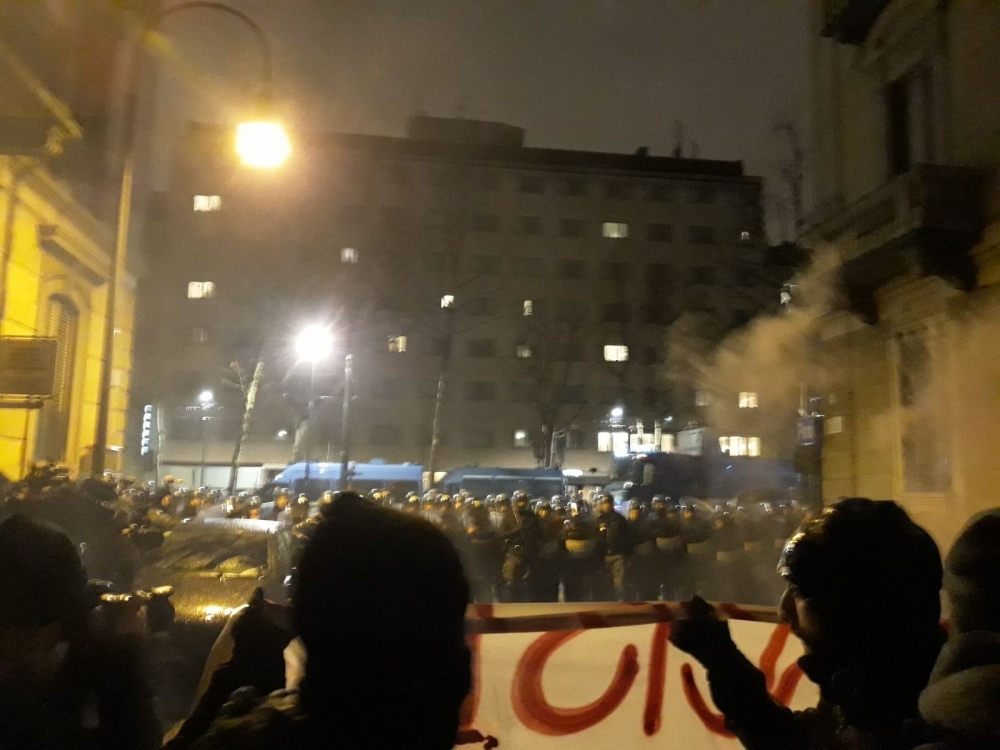
What is happening in Italy right now? In the wake of the recent episodes of xenophobic and right-wing attacks and terrorism, has the people of Italy turned conservative – or outrightly fascist? Little can be inferred about the state of the country from mainstream reports and correspondents, who in most cases present it through the lenses of party politics, corrupt elites, a stagnant and possibly bankrupt economy and soaring migration-related problems.
But it would be a complete error to stick to this narrative in order to understand the context of the electoral campaign and the current antifa revival.
Let’s start with the self-narrative of representative politics, which is increasingly becoming a matter concerning a more or less wealthy senior citizen – an always shrinking segment of the Italian populace – that in turn translates into most of the «public opinion» being voiced and represented in and by the mainstream media and even on social networks.
Over the last five years in particular, party (and mainstream union) membership has dropped considerably; public funding of parties has been banned, curtailing their debt-ridden territorial organization and opening up the way for the influence of private (and even foreign) interests and lobbies; in comparison to an 80% attendance in 2006, no more than two thirds of the potential voters are expected to show up at the polls (some say the bar could even fall below 50%) on March 4, and it’s expected that up to 70% of the youth may not vote at all.
After making this context clear one has to address the suffocating narrative that on one hand pictures a seemingly unavoidable fascism coming out of nowhere or thanks to the wits of its leaders, and on the other hand keeps representing it, along with antifascism, as an outdated ideology just fueling street gang violence. At least three paradigmatic shifts have to be taken into account in order to understand the comeback of nationalism and fascism in Italy.
The first is the 2010-2011 Sovereign Debt Crisis in Southern Europe. In its wake, the unforgiving and predatory stance of the EU bureaucracies (eventually confirmed during the Greek Oxi), capitalizing on the greediness and cronyism of national politicians, disenfranchised some parts of the national bourgeoise. The latter, especially some whose interests were hit by the sanctions against Russia for the 2014 Crimean crisis, started to look away from atlanticism and neoliberal europeanism; a development that was matched by the xenophobic Lega Nord party’s (by then a federalist and regionalist entity) rearrangement on a lepenist and nationalist rationale under its new secretary Matteo Salvini.
The second one is the impact of the post-Arab Spring migrations that, albeit less significant than in such countries as Lebanon or Turkey, tested the holding of multiple layers of the Italian state – welfare and redistribution systems, national identity, relations with the EU – influencing the political debate accordingly. In spite of NATO operations in Libya; of the responsibilities of local cybersecurity and the military complex in perpetuating oppression, crisis and instability in parts of Africa and the Middle East; of the complicity with Erdogan’s AKP regime; and of the across-the-board cooperation between parties and crime organizations in exploiting migrant relief and labour (especially in the rising logistics’ sector), few were able to realize the connection between war, migration and austerity – and even less to stand against it.
The last one is the accomplished mutation of the centre-left Democratic Party (PD) into a neoliberal, securitarian and authoritarian entity.
It is especially from 2014 and on, when PD’s secretary Matteo Renzi overthrew the former Letta government through a palace coup, that a historical responsibility of this organization has surfaced in letting the far-right back into mainstream politics. After its predecessors for the first time in 50 years allowed a shared memory with the fascists of WW2 and introduced law-and-order and discriminatory frameworks in an attempt to connect those to a «left-wing» identity, the more recent Renzi leadership carried out a two-pronged operation.
On one hand, the most strong movements (housing rights activists, students, territorial committees, logistics workers) in Italy were attacked both with targeted legislation and almost with terrorist «security» operations. The use of riot police, water cannons, tear gas and other means of crowd control exponentially grew during the tenure of the PD, along with forms of media and psychological antisocial warfare. For example, the high speed TAV train construction yard in Val Susa was militarized and declared «site of national interest» in order to contain and discipline its grassroots opponents; while the evictions of the housing occupations (along with their sick, elderly and child dwellers) in Bologna and Rome, beefed up by up to 40 police wagons and firemen trucks at time, triggered activists to conclude that «The PD does what Lega only dreams of».
After Renzi’s defeat and resignation after the December 2016 constitutional referendum (and the making of the Gentiloni government, an attempt by state elites to further entrench neoliberalism and securitarianism) this approach was advanced and deepened by the new Minister of the Interior Marco Minniti. As a former undersecretary in the D’Alema government – historically responsible for the refusal of granting political asylum to Kurdish leader Abdullah Ocalan in 1999 thus leading to his subsequent arrest in Kenya – he made a career through a number of government and party posts related to police, intelligence and NATO agencies. As a would-be Gustav Noske, he enforced a number of heinous acts against lower classes and movements: from the eponymous Minniti-Orlando decree, which enhances police powers introducing city or city areas bans for arbitrary categories of people and activists, to the promotion of former Genoa G8 torturer Caldarozzi to an anti-mafia agency leader; from the institution of concentration camps in Libya in order to stop the migrant influx and massive migrant round-ups on the national soil (one in Milan’s Stazione Centrale last year echoed the infamous Zeus Xenios operation in Athens in 2013) to a (failed) ban of antifa grassroots demonstrations in Macerata in response to the far-right terrorist drive-by there in early February 2018. This framework has been instrumental in defending an “institutional antifascism” with a non-confrontational, memorialist and naively tolerant approach – allowing street fascists organize and fundraise despite the constitutional provision forbidding them to do so.
On the other hand, rather than focusing on a losing battle against the rising populist Five Stars Movement, Renzi and the mainstream media around him fetishized Salvini (as well as other fascist parties) as their convenient «loathsome opponent» and «useful idiot»: one that was never intended to actually win his nationalist and retrograde battle against the «respectable» neoliberal, europeanist, progressive elite. Yet, this allowed the far-right to legitimately bring their own narrative, perspective and outrageous proposals into the mainstream. In parallel with glamorized representations of fascists and crime syndicates making headways through TV series and leisure magazines, authorities increasingly allowed «symbolical» public commemorations of the fascist past: even Nazi war criminal Erich Priebke was granted a public funeral, and the remains of the late king Vittorio Emanuele III – who supported Mussolini – were repatriated.
What, then, are the results of these processes? After also alienating its more left-leaning base, slashing welfare and services and depriving its proxies in unions and civil society of legitimacy (in a gamble to expand on the right and turn into a catch-all, «natural» government party) the upcoming elections could be the last act of a gradual process of PASOKization of the PD – and lead to its ultimate demise, or force it into a coalition with their former opponent Berlusconi. But the worst legacy of the last five years of the technocrat and PD governments (matched by other exogenous factors like the failure of Syriza and Podemos in front of EU policies’ force majeure) is the across-the-board institutional hegemony of the «National Preference» ideology. The latter, developed in France in the ’80s by far-right Front National ideologues, revolves around a patronizing, common-sense ethnocentrism and nationalism bent on «working our problems out first» and giving precedence to natives in access to welfare and services, regardless of one’s own state of need. Thus, the discourse obstructs solidarity between indigenous and foreigners in various struggles and movements and creates a fictitious «internal enemy», in a process akin to the one Europe experienced in the ’30s. The national preference discourse, now adopted by all the parties in the current parliament, will have to be the first target of a renewed, post-elections long-term antifa strategy; one that will necessarily have to integrate the refusal and preclusion of authoritarian and securitarian developments with a renewed presence in increasingly mestizoed struggles and territories.
Ti è piaciuto questo articolo? Infoaut è un network indipendente che si basa sul lavoro volontario e militante di molte persone. Puoi darci una mano diffondendo i nostri articoli, approfondimenti e reportage ad un pubblico il più vasto possibile e supportarci iscrivendoti al nostro canale telegram, o seguendo le nostre pagine social di facebook, instagram e youtube.








